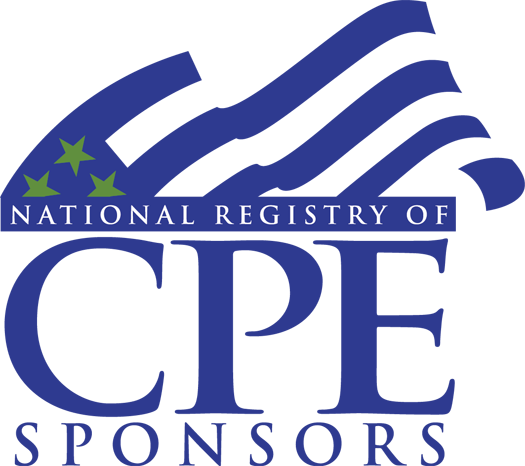Who Should Attend:
Mid- and senior-level management, as well as those involved in the accounting, treasury, purchasing, inventory, cashier, billing, and collection functions at the utility.
Program Overview:
This four-part webinar series provides a framework for addressing internal fraud, which is fraud perpetrated by an organization’s own people. The framework of an effective anti-fraud program includes six interrelated elements:
- Anti-Fraud Environment (Laying the Foundation)
- Fraud Risk Assessment (Installing the Floor)
- Control Activities (Raising the Walls)
- Program Documentation (Installing the Ceiling)
- Program Training/Company-Wide Fraud Awareness Training (Installing the Ceiling)
- Monitoring and Routine Maintenance (Putting on the Roof)
Each of the two-hour webinars provides in-depth instruction on these elements as well as current, easy-to-perform fraud detection methods.
Session 1: Anti-Fraud Environment and Risk Assessment, March 9, 2022
What is the attitude of those in control regarding the importance of internal controls and the prevention of fraud? If the leadership is not concerned with the design and development of sound internal controls, then no one else will be. The control environment is evidenced by certain policies that serve as the foundation for the antifraud program. These foundational policies include a code of ethics, a fraud policy/fraud reporting policy, and a policy that addresses the employees’ presumption of privacy.
Risk assessment speaks to the issue of a constant awareness and analysis of fraud risk that may be present within the operations of the organization. Leadership should be in a constant mode of analyzing the risks associated with the performance, recording, and reporting of financial transactions. The focus on risk assessment is not how to prevent fraud, but rather how to identify what frauds need to be prevented. Once these risks are identified, the control activities are designed to address those risks.
Session 2: Control Activities, March 16, 2022
This session includes numerous controls and processes for not only prevention of fraud, but also for detection of fraud. Topics include but are not limited to new vendor establishment and vendor information change processes, which is the key to protecting the big dollars and increasing the perception of detection. These processes address the mind of the potential perpetrator.
Session 3: Program Documentation and Training, March 23, 2022
Your anti-fraud program should be committed to written form for constant reference purposes. This also serves to provide ease of transition into different job responsibilities for employees, whether from transfers within the organization or the hiring of new employees. This ensures that the performance of processes and the reasons for these processes are not lost over time. In the absence of written documentation, the purposes and objectives of certain processes can become diluted and somewhat invisible as the organization experiences turnover.
Training includes how and when the anti-fraud program is communicated to the employees. A properly designed program is worth nothing if it is only a paper document that has not been communicated to employees. This session also includes information on how to establish a continuous organization-wide fraud awareness training program.
Session 4: Monitoring and Routine Maintenance, March 30, 2022
The final aspect of a properly functioning anti-fraud program is the monitoring aspect. If the operation of the program is not monitored for compliance, there is no measurement by which the effectiveness of the design or operation of the program can be made. The monitoring element also serves as the basis for the identification of any program changes that may be necessary as the nature of operations change.
Program level: Intermediate
Prerequisite: None
Advanced preparation for this webinar is not required
Delivery method: Group Internet Based
Recommended CPE: 6.0
Recommended field of study: Regulatory Ethics 2.0, Behavioral Ethics, 2.0, Accounting 1.0, Finance 1.0
Other Continuing Hours: This course qualifies for six hours of CEU. NWPPA certificates will be issued upon full completion of the webinar.
Registration Requirements: Please register online at www.nwwpa.org, or contact Gail Patterson, registration@nwppa.org.
Program Recordings:
This webinar will be recorded. Registrants will be emailed a copy of the recording after the webinar.
Program Instructor:
Steve Dawson CPA, CFE, Dawson Forensic Group
Course Schedule:
The webinars will be held from 10 a.m. to noon Pacific Time each day. Attendees will be admitted 15 minutes before the webinar begins.
Course Fees:
Utility Member Rate: $370
Associate Member Rate: $555
Non-Member Rate: $1,110
Cancellation Policy:
Cancellations are accepted with a full refund as follows:
For webinars and virtual classes, if the request is made at least five days prior to the course, then 100% of the registration fee will be refunded.
For in-person events, the following fee structure applies: cancellation at least 30 days prior to the event, full refund; within 15-29 days, $100 fee; and within 1-14 days or no show, 100% of the registration fee. When possible, please send a substitute instead of canceling because NWPPA does not charge a fee for substitutions.
Complaint Resolution:
NWPPA endeavors to resolve any and all complaints as expeditiously as possible. If a complaint is not resolved to our members satisfaction, please contact Scott Corwin, Executive Director at scottc@nwppa.org or (360) 816-1441. For more information regarding administrative policies such as complaints or refunds, please contact our office at (360) 254-0109.
NWPPA Code of Conduct:
NWPPA holds professional conferences, meetings, and other events to enhance the success of our members, and we are committed to providing a professional environment free of inappropriate actions or harassment. All attendees are expected to observe the Code of Conduct while attending an NWPPA event and while participating in any NWPPA-sponsored social or networking function.
The Northwest Public Power Association is registered with the National Association of State Boards of Accountancy (NASBA) as a sponsor of continuing professional education on the National Registry of CPE Sponsors. State boards of accountancy have final authority on the acceptance of individual courses for CPE credit. Complaints regarding registered sponsors may be submitted to the National Registry of CPE Sponsors through its web site: www.nasbaregistry.org.
